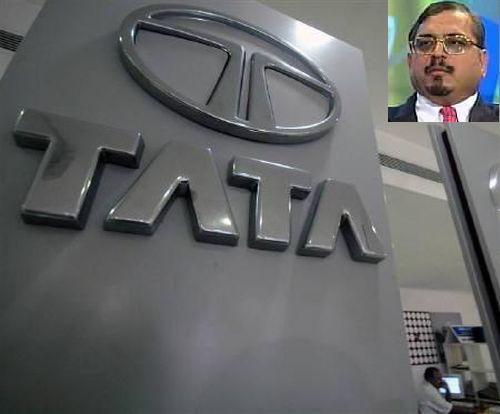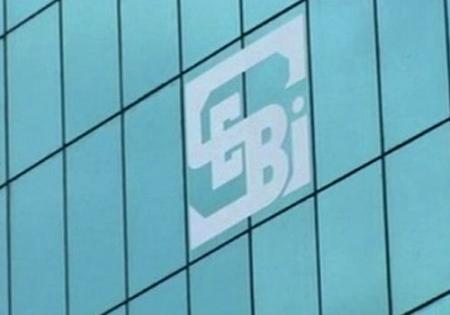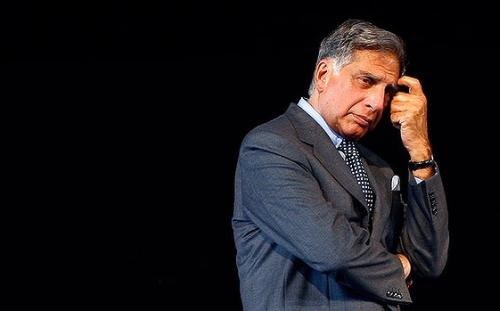
You could call it coincidence. As Ratan Tata was preparing to hand over the baton of Tata Sons to Cyrus Mistry, the Securities & Exchange Board of India, or Sebi, earlier this week, banned Dilip Pendse from the capital market for a period of two years.
Pendse was the managing director of the erstwhile Tata Finance, the group's integrated financial services arm, a flourishing business in the 1990s.
At that time, Pendse was a member of the innermost circle of the salt-to-steel group. Sebi's action comes some 13 years after Pendse allegedly violated several laws and regulations while heading Tata Finance.
In the late 1990s, Pendse allegedly routed money raised from Tata Finance's deposit holders through two subsidiaries, Niskalp Investments and Inshallah Investments, to various new economy stocks such as HFCL, Global Telesystems, Veerangana Software, etc.
These stocks tumbled in the dot-com crash in 2000-2001, raising questions over the safety of depositors' money.
By April 2001, Sebi started its enquiries when Tata Finance wanted to raise Rs 90 crore (Rs 900 million) through a rights issue. Sebi was initially verifying if the losses made in the above investments required a disclosure to the investors of the rights issue.
Ta-Ta, Ratan: Tribute to an iconic Indian
...

J R Varma, who was a whole-time member of Sebi at that time, was quoted as saying: "The question is whether the event is significant enough to warrant disclosures to the investors," adding it was possible that some of the investors might like to withdraw from the issue for this reason.
Tata group first acknowledged these losses in July 2001 but distanced itself from Pendse's actions. In a statement, Tata Finance's board of directors said that certain unauthorised financial transactions were recently discovered by the board that "include, inter alia, diversion of funds to its subsidiary, Niskalp Investment and certain other associate companies, whose affairs were also controlled and managed by the then management of Tata Finance.
"The controversy now assumed larger proportions. The Tatas hired AF Ferguson to do an independent audit of Tata Finance's books.
Losses were initially estimated to be Rs 125 crore (Rs 1.25 billion). Eventually, Tatas alleged illegal diversions to Niskalp caused losses of Rs 425 crore (Rs 4.25 billion).
Tata Sons, the group holding company, took over Niskalp to protect the deposit holders of Tata Finance from potential losses.
Ta-Ta, Ratan: Tribute to an iconic Indian
...

Pendse claimed that all his investments were done with the approval of the group brass. He claimed as much in an affidavit filed in the Bombay High Court, where he said Tata and other senior group functionaries, such as N A Soonawala, were aware of the investments made by Tata Finance in Niskalp. Tata denied this.
At the annual general meeting of VSNL in August 2002, Tata said, "It is absolutely untrue that I was consulted by Pendse. I was not involved in Tata Finance and its issues.
The first time I was informed was when Pendse called me up in Dubai on April 1. If I was involved, why would he contact me?
People close to Pendse say he was the blue-eyed boy of the Tata group bosses before the controversy broke out. Pendse claimed in a newspaper interview that "Tata used to talk to me regularly and we used to discuss various matters, including matters of Tata Finance."
He added he used to meet Tata every Wednesday at 3 pm (whenever he was in town) to discuss group affairs and those meetings lasted 30-45 minutes.
"This practice was followed after my taking over as the managing director of Tata Finance till almost the end of 1998 and early 1999. Thereafter, I continued to meet him frequently, though not on a specific day. I had meetings with him not only in his office but even at his house after office hours," he was quoted as saying.
The Sebi order has brought to life the decade-old controversy.